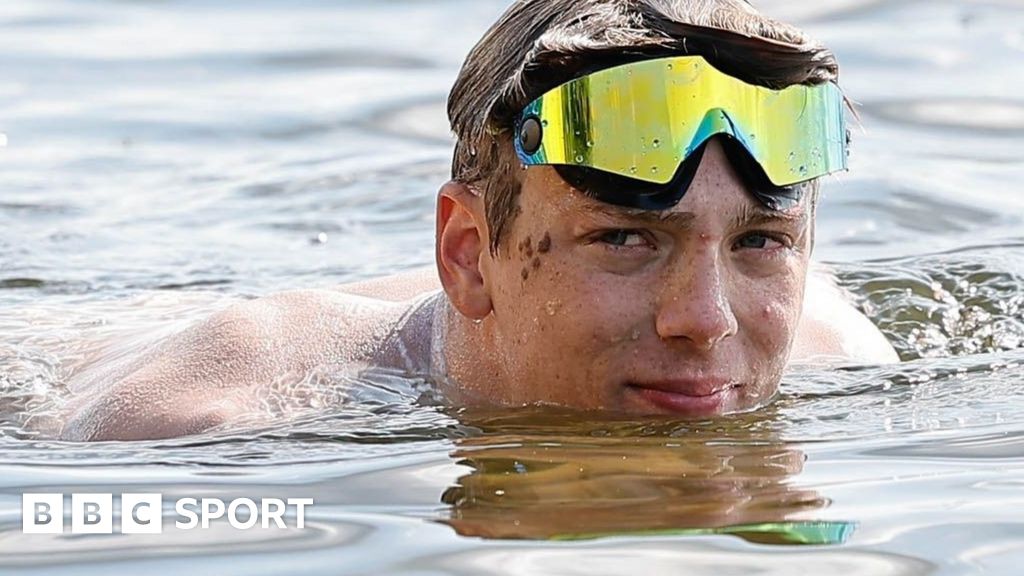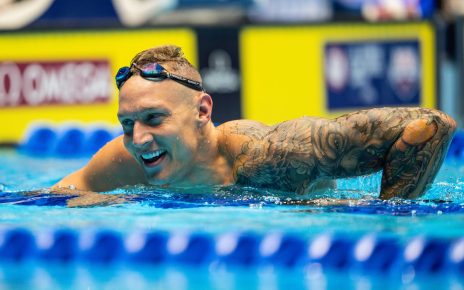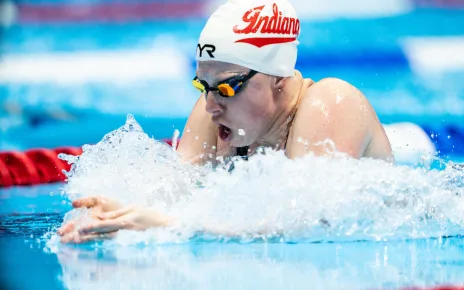
Having won several Olympic medals in rowing, including gold at the London 2012 Olympics, Dame Katherine Grainger knows what it is like to win on the water, but also what else can lurk there.
“Anything that causes problems either with an ability to perform or affects athletes’ health… to think they get set back because of issues in environment we can do something about; it is very frustrating,” says the 47-year-old, who is now chair of government agency for sporting investment UK Sport, and sees water quality as a big issue.
“I’ve been at competitions or training venues where the water has been less than ideal – conscious of trying not to get it splashed or trying not have it on you in any way… don’t inhale it when getting out of the water because there’s things in the water that are very dangerous to your health.”
Grainger wants water-based sports in the UK to come up with solutions for change, and says she is in a position to speak to the environment minister and “cross-working groups”.
But she also wants others to help raise awareness of the problems – including current athletes, such as Pardoe.
“I’m immensely proud of the new generation of athletes we have – so passionate and so unwilling to accept the situation and to ask why, who is responsible, who is accountable and where can changes be made.
“I was aware of it in the past, but I’m almost disappointed in myself [about] why wasn’t I asking those questions.”
Grainger was speaking at the Canoe Slalom World Championships, taking place in London at the Lee Valley White Water Centre, where British Canoeing is one such sport looking to establish initiatives to fight the issue of water pollution.
Ben Seal, head of access and environment from British Canoeing, said: “We’re getting more data [about pollution] these days – we know it is getting worse from data we’re seeing, we need the government to go further, faster to stem the tide of sewage pollution.
“We’re putting pressure on the water companies, the water sector, the regulators, the Environment Agency and politicians, primarily for them to understand the waterways are used by recreational users – it’s paramount we protect environment, but also we protect the people who derive enjoyment from these places, whether it be swimming of paddling.
“There’s some really quick wins here. It’s not just about spending billions on new infrastructure – it’s about government using legislation we’ve got to enforce it.”
In a statement to BBC Sport, a spokesperson for the Department of Environment Food and Rural Affairs said: “We are unequivocal that polluting our rivers and the subsequent disruption it causes to recreational sports is unacceptable. Our Plan for Water sets out more investment, stronger regulation, and tougher enforcement to tackle every source of water pollution.”
The Paris Olympics is the biggest platform of all to send a message for change – somewhere Pardoe is hoping to be once he has qualified for his marathon swimming event.
“Raising awareness on the issue is huge – letting people know about what is happening,” he says.
“I went and saw the course on the Seine and saw all the monuments and the view of the Eiffel Tower. In open water swimming we don’t get to see these monuments while we’re actually in the water, but I can’t wait.
“We quite often race in seas, just swimming out from the shore and the fans can’t see it… the TV angles aren’t great. The future for our sport is races in rivers through cities where spectators can come down and watch.”
Pardoe, among a growing number of athletes and sports fans, just hopes the water will be clean enough for that to become a reality.



